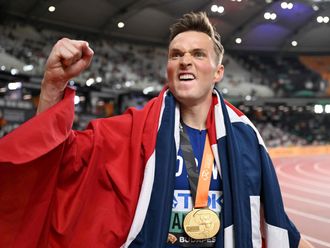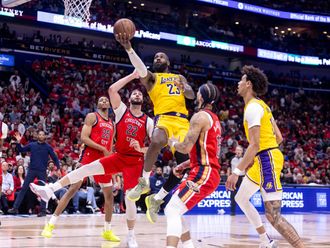Philadelphia: A US judge refused on Monday to accept a proposed settlement between the National Football League and thousands of retired players over concussions, saying changes were needed before she would approve it.
Ruling one day after the Super Bowl, US District Judge Anita Brody in Philadelphia said the accord should expand payment eligibility for some players and families.
Among the changes she wants is an assurance that retired players who died of the brain disease chronic traumatic encephalopathy (CTE) after she granted preliminary approval of the accord last July 7 should be covered.
The NFL had agreed to pay $4 million (Dh14.69 million) each to families of former players who died from CTE before July 7, but nothing to those diagnosed afterward.
Brody also said the settlement should provide for some credit for play in the World League of American Football, the NFL Europe League and the NFL Europa League, and allow for testing of more players “regardless of funding limitations” in the agreement.
The judge said the modifications would “enhance the fairness, reasonableness, and adequacy” of the settlement.
“We will work with the National Football League to promptly address the issues raised in Judge Brody’s order, and remain confident this settlement will receive final approval,” said Christopher Seeger, co-lead counsel for the retired player plaintiffs.
Brody ordered lawyers for the NFL and the players to come up with proposals by February 13 to amend the settlement to address her concerns, or explain why they cannot.
“We intend promptly to discuss with class counsel the points addressed in the order and continue to have a high degree of confidence that this settlement — which has been accepted by more than 99 per cent of retirees — will receive final approval and provide important and generous benefits to retirees and their families,” the NFL said in a statement.
Brody had granted preliminary approval for the settlement in July after the NFL agreed to remove a $765 million cap on payments.
Most of the 20,000 former players involved in the class-action lawsuit back the deal, which provides payments of up to $5 million to those with the most serious neurological impairments.












